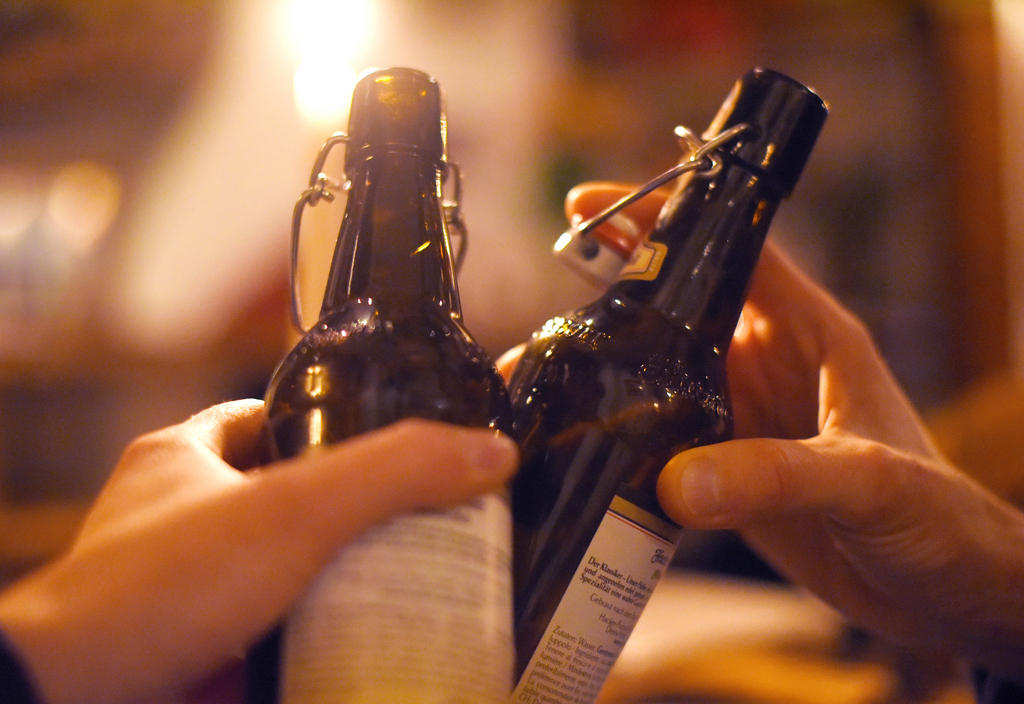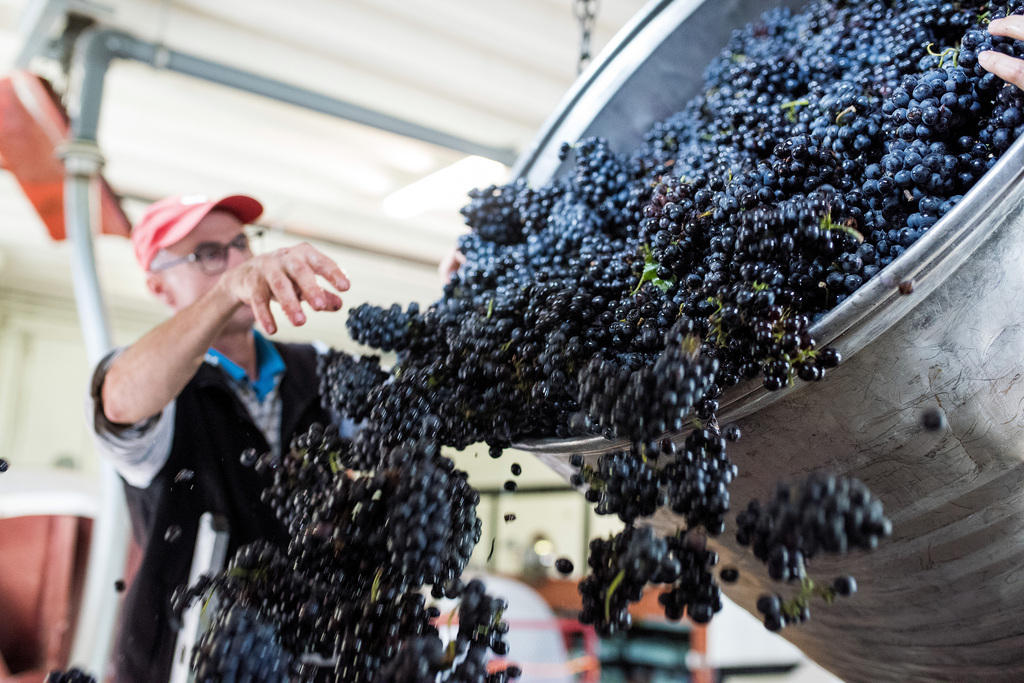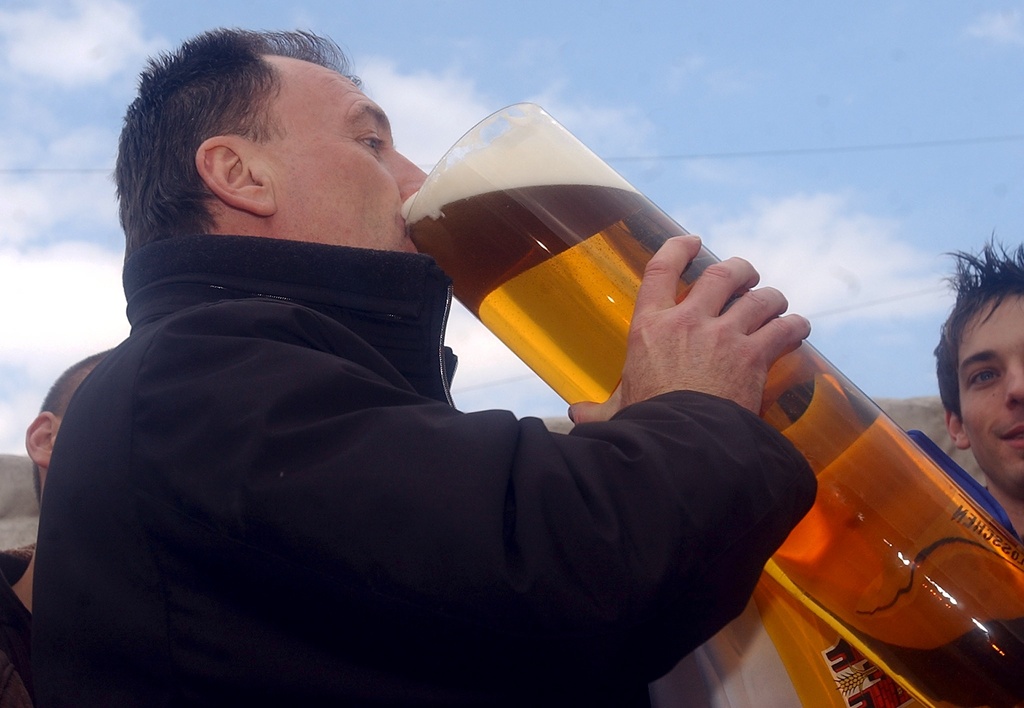Beer sales slowly dry up in Switzerland

The amount of beer consumed in Switzerland declined last year, as it did for wine. Yet the number of specialist craft microbreweries continues to rise.
Between October 2016 and September 2017, the Swiss drank 461 million litres of beer (54.5 litres per person) – down 0.2% on the previous reporting period, according to the Swiss Breweries Association (SBA)External link.
As shown in the chart below, the downturn in the Swiss beer market began in the 1990s.
The low point, in 2005, corresponds to when Switzerland lowered the blood-alcohol drink driving limit from 0.8 milligrams per millilitre to 0.5 milligrams.
This new limit had a significant short-term impact, said SBA director Marcel Kreber.
The general downward trend in beer drinking – and alcohol consumption in general – has been confirmed, he added.
“Our society seems to be more in a hurry. We have less time to share a meal with friends and we pay more attention to our health. Nowadays, alcohol and work do not go together. In the past, it was not unusual for people to drink alcohol at work. Breweries used to deliver beer to building sites, for example,” he noted.
Wine on the wane
Wine-drinking appears to be following the same trend. The 2017 survey by Swiss WineExternal link, an association representing the six main wine regions, showed a decrease in the number of people who drink wine every year from 81% in 2013 to 77% today.
In 2016, the Swiss drank 253 million litres of wine or an average of 40 bottles per inhabitant, according to the Federal Office for Agriculture. Total consumption fell by ten million litres (3.8%) compared with the previous year.
At the same time, Swiss beer fans appear to prefer a more diverse selection. Microbreweries continue to spring up across the country.
At the end of September, the Federal Customs Administration said there were 833 breweries, compared with 734 a year ago. It is claimed that Switzerland has the highest density of breweries in the worldExternal link, while 50 are responsible for most of the production.
“In an increasingly globalised world, some people are fond of local products with an identity and which provoke an emotion,” Kreber said.
Translated from French by Simon Bradley

In compliance with the JTI standards
More: SWI swissinfo.ch certified by the Journalism Trust Initiative
















You can find an overview of ongoing debates with our journalists here . Please join us!
If you want to start a conversation about a topic raised in this article or want to report factual errors, email us at english@swissinfo.ch.